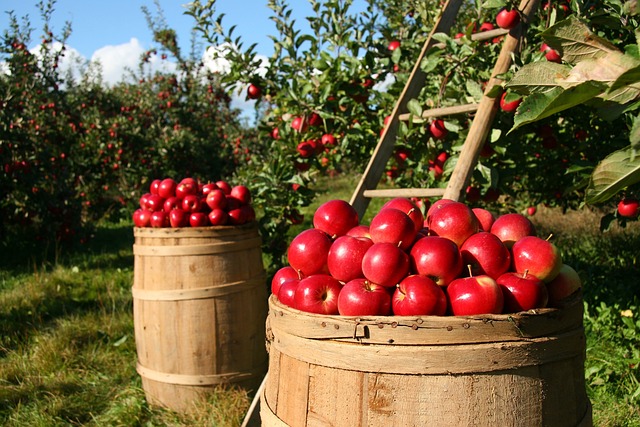Poultry farming is a lucrative venture that provides a sustainable source of income and nutrition. In Ghana, where agriculture plays a significant role in the economy, starting a poultry farm can be a rewarding venture even with limited resources.
This comprehensive guide aims to assist new farmers in navigating the challenges of launching a poultry farm in Ghana with constraints on financial resources.
Starting a Poultry Farm with Limited Resources in Ghana: A Comprehensive Guide for New Farmers
Before embarking on your poultry farming journey, conduct thorough research to understand the local market, government regulations, and the specific needs of poultry farming in Ghana.
Plan your budget meticulously, taking into account the costs of land, equipment, feeds, and other essentials.
Choose the Right Poultry Type
Select the type of poultry that aligns with your goals and available resources. Broilers, layers, and local breeds are common choices. Broilers are raised for meat, layers for eggs, and local breeds for both meat and eggs.
Consider factors such as market demand, available infrastructure, and your personal preferences.
Securing Land
Identify a suitable piece of land for your poultry farm. It doesn’t have to be extensive, especially if you have limited resources. Ensure that the location is easily accessible and has sufficient space for future expansion. Adequate land space is essential for constructing coops, providing space for the birds to roam, and managing waste effectively.
Constructing Affordable Housing
Constructing poultry houses can be a significant expense, but with limited resources, opt for cost-effective solutions. Utilize locally available materials and consider simple yet effective designs. Adequate ventilation and proper insulation are crucial to maintaining a healthy environment for your poultry.
Sourcing Quality Breeds and Chicks
Choose reputable suppliers for your poultry breeds or chicks. Local breeds are often hardy and better suited for the environment, but it’s essential to ensure they come from disease-free sources. Vaccinate your chicks to prevent common poultry diseases and ensure their overall well-being.
Feeding on a Budget
Feeds constitute a substantial portion of poultry farming expenses. Explore locally available and affordable feed options. You can supplement commercial feeds with locally sourced alternatives like kitchen scraps, grains, and green leafy vegetables. Ensure a balanced diet to promote healthy growth and optimal egg production.
Disease Prevention and Management
Preventing diseases is more cost-effective than treating them. Practice good biosecurity measures, maintain a clean environment, and monitor the health of your birds regularly. Consult with local veterinary services for guidance on vaccination schedules and disease prevention strategies.
Marketing and Sales Strategies
Develop a marketing strategy to reach potential customers. Utilize social media, local markets, and word of mouth to promote your poultry products. Consider forming partnerships with local retailers and restaurants to expand your market reach.
Continuous Learning and Adaptation
Poultry farming is dynamic, and staying informed about industry trends and best practices is crucial. Attend workshops, engage with fellow farmers, and seek advice from experienced poultry keepers. Be open to adapting your strategies based on the evolving needs of your farm and the market.
Financial Management
Keep meticulous records of your expenses, income, and overall financial performance. This will help you make informed decisions, identify areas for improvement, and secure funding if needed.
How much money do I need to start a poultry farm in Ghana?
The initial capital required for a poultry farm in Ghana varies based on factors such as the scale of operation, type of poultry, and available resources. A small-scale poultry farm may require around GHC 5,000 to GHC 10,000, while larger operations may need significantly more. A detailed business plan will help estimate your specific needs accurately.
How can I start a poultry farm with little money?
Starting a poultry farm with limited funds involves careful planning and cost-effective strategies. Utilize locally available materials for housing, explore affordable feed options, and consider starting with a smaller flock. Additionally, look for government grants or support programs for small-scale farmers.
What are the materials needed to start a poultry farm?
Essential materials include land, poultry housing (coops), feeding and watering equipment, brooders (for chicks), quality breeds or chicks, vaccination supplies, and initial stock of feeds. Additionally, you’ll need record-keeping tools, basic veterinary supplies, and biosecurity measures.
How much do I need to start a farm in Ghana?
The overall cost of starting a farm in Ghana depends on the type of farming and its scale. For poultry farming, it may range from GHC 5,000 for small-scale ventures to significantly more for larger operations. A well-researched business plan will help determine your specific financial requirements.
Can I start a poultry farm with 100k?
Yes, it’s possible to start a small-scale poultry farm with GHC 100,000. Focus on cost-effective solutions, start with a manageable number of birds, and explore ways to minimize expenses, such as using locally available materials for housing and sourcing affordable feeds.
How do I start a mini poultry business?
To start a mini poultry business, begin by conducting thorough research and developing a detailed business plan. Focus on a smaller number of birds, use cost-effective materials for housing, explore local feed options, and implement efficient management practices.
How many bags of feed will 100 layers consume in a month?
The amount of feed consumed by 100 layers in a month depends on factors like the type of feed, the stage of production, and individual bird requirements. On average, layers may consume approximately 3-4 bags of feed per month per 100 birds.
How much does it cost to keep 500 layers in Kenya?
The cost of keeping 500 layers in Kenya will vary based on factors such as housing, feeding, veterinary care, and other operational expenses. A comprehensive business plan is essential to estimate the total cost accurately.
What is the battery cage system in poultry?
The battery cage system in poultry involves housing laying hens in small cages, usually in multiple tiers, to maximize egg production efficiency. While it increases production, this system has faced criticism for its impact on animal welfare, and alternative methods like free-range systems are gaining popularity.
What is the meaning of poultry birds?
Poultry birds refer to domesticated birds raised for various purposes, including meat and egg production. Common poultry birds include chickens, ducks, turkeys, and geese. Poultry farming is a vital component of the agricultural industry, providing a significant source of protein and income worldwide.
Conclusion
Starting a poultry farm with limited resources in Ghana is a challenging but rewarding endeavor.
By conducting thorough research, making informed decisions, and implementing cost-effective strategies, new farmers can establish successful and sustainable poultry ventures in Ghana’s thriving agricultural landscape.



